Reading Time: 8 Min
Nose surgery patients often ask about what to do and what not to do during the recovery period after surgery. What follows is a list of dos and don’ts for rhinoplasty recovery.
Dos and don’ts after rhinoplasty
1- On the day of surgery and 4 hours after surgery, you can drink clear liquids and very soft food. (See below to find out more about post-op diet)
2- Rest at home (or hotel) on the day of your surgery. Keep your head elevated using two or more pillows. The day following your surgery walking is permissible.
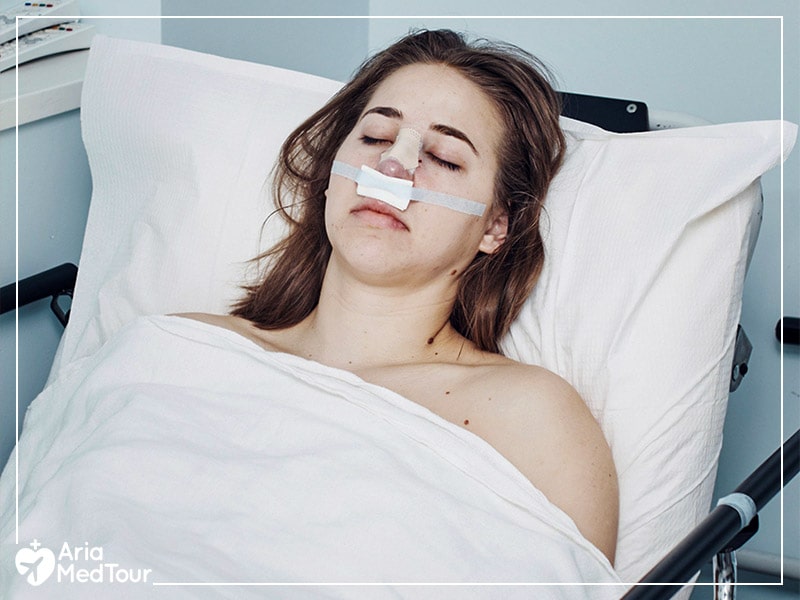
You should keep your head elevated while sleeping after rhinoplasty. A large pillow can do the trick too.
3- Start taking your medications prescribed by your doctor after regaining your full consciousness and adhere to your medication schedule (although most patients do not need any medications at all). The doctor might prescribe acetaminophen 500 mg that should be taken every 4-6 hours to relieve the post-op pain. Do not drink alcohol during this time as it interacts with some medication including acetaminophen, which is harmful to your kidneys.
4- On the day following your surgery, remove the dressing under the nose (if there is one) and wash inside the nose at least 5 times a day with the washing solution and syringe provided to you and apply ointment to the sutured areas 3 times a day.
5- Serous (watery) drainage is normal for 48 hours after the surgery, so don’t panic, as the nasal packing can be replaced.
6- For the first 48 hours after the surgery, apply a cold compress on the nose and eyes. Then use a warm compress for another 48 hours (do not press the compress too hard on the nose).
* (Some people might experience vomiting or, with a less probability, bloody vomiting. Not to worry; contact your doctor.)
Nose Job Packages
Surgery + Hotel + Visa
Transfer + Interpreter
7- Take a 30-min daily walk starting from day 3 after surgery.
8- Sneezing might affect some people after the surgery. Sneeze with an open mouth so that no pressure would be put on your nose.
9- Visit your doctor on day 5 to 7 following your surgery to get the nasal cast, splint, and sutures removed. Make sure to take a bath before visiting the clinic, but do NOT remove the cast by yourself. If, however, the cast gets removed unintentionally, do not fret and visit the clinic immediately.
10- If you have a tampon in your nose, your doctor will inform you about the time of its removal.
11- When visiting the clinic for removal of stitches take with you some juice and chocolate.
12- After the removal of the bandage, there might be a discoloration in the skin of your nose, eyes and upper lip. Nothing to worry as this usually disappears 2-3 weeks after surgery.
13- No driving for one or two weeks after surgery.
14- It is recommended that you stop smoking 2-3 weeks before and after surgery because nicotine slows healing and increases the risk of complications.
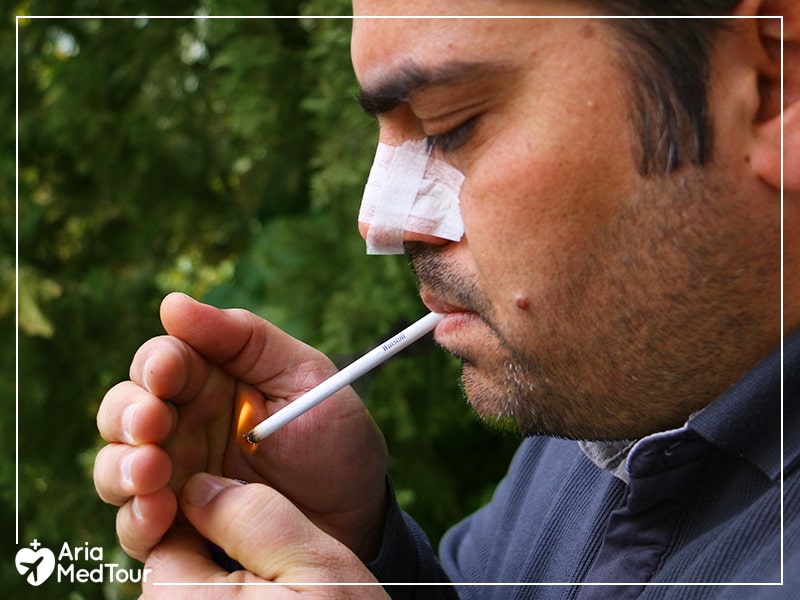
Nicotine slows healing and increases the risk of complications after rhinoplasty.
- Read More: Smoking After Rhinoplasty
15- Swelling and bruising are common after nose surgery. The swelling will gradually subside during the first month to some extent but it takes a few months to completely fade away. The best remedy for swelling is the passage of time. Bruising will subside within 2-3 weeks following the surgery.
16- Swelling and bruising under the eyes are also common side effects of rhinoplasty that usually subside within the first 2-3 weeks after surgery. So not to worry.
17- Stop taking aspirin and Ibuprofen two weeks before surgery to two weeks after it.
You May Like to See Before & After Photos of Rhinoplasty
You May Like to See Before & After Photos of Rhinoplasty
18- Avoid exercising for 1 month. After one month, light exercises are permitted. Swimming and treadmill workout is permitted (diving is forbidden). Avoid ball and contact sports for 6 months.
19- Wear comfortable clothes. Do not wear pullover clothes and T-shirts and other clothes that need to be pulled over your head for two weeks after surgery.
20- Giving your hair a salon-style wash is permitted even in the first week after surgery when you have a splint in your nose; just make sure the splint doesn’t get wet. Do not wash your hair by yourself.
21- Try to avoid washing your face during the first week, as the splint might get wet; a wet splint causes skin rash and infection. Dry it with a hairdryer if it gets wet. Washing body is permitted.
22- Do not wear eyeglasses (medical glasses and sunglasses) for 3 months after surgery, as the nose pads can pressure the nose and hinder the healing of the nasal bones. If you have to wear them, tape them to your forehead so that they won’t pressure your nasal bones. Contact lenses are permitted after 2-3 days.
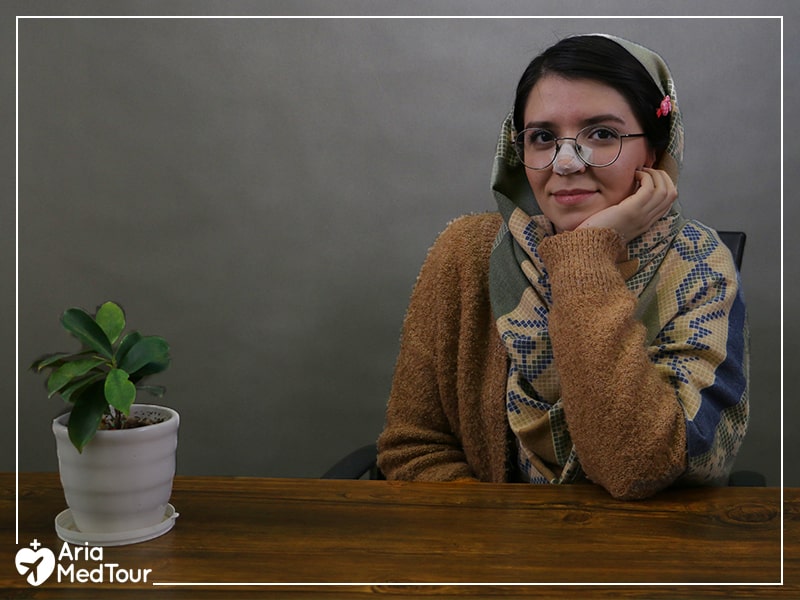
Do not wear eyeglasses for 3 months after surgery.
- Read More: How to wear glasses after rhinoplasty
23- Avoid sexual intercourse for 10 days after surgery. Also, any adrenaline-rush activity (such as masturbation) should be refrained from during the first two weeks, as they cause inflammation in the nose and sometimes bleeding.
24- Brush your teeth gently and with a soft brush for some time after surgery.
25- Avoid lengthy phone conversations and social activities for 10-14 days after surgery.
26- Avoid laughing out loud and extreme facial movements for one week.
27- You may experience some degree of numbness (decreased sensation) in your nose tip and front teeth after surgery, which will go away after two months.
28- Avoid exposing to intense sunlight for 6 months. Sunlight causes inflammation in your nose.
29- Do not make any judgment about the result of your nose surgery until at least 6 months after the surgery, as it takes time for the swelling to fade away to an extent that you could see the results. It takes at least 12-18 months for the nose to take its real shape. Sometimes the improvement process continues up to 3 years after surgery.
- Read More: ‘How long does it take to recover from a nose job?‘
30- Make sure to ask your doctor to sign for you a ‘fit to fly’ certificate for your return flight.
In case of emergency, contact us. Each of the following conditions is considered an emergency:
- Nose bleeding (different from normal clear discharge) *
- High fever (over 38.5º Celsius)
- Persistent nausea and vomiting
- Diarrhea
- Dizziness
- Extreme pain in the nose
- Shortness of breath
- Faster-than-normal heart and breathing rate
- Pervasive blind pimples on your body
* A cold compress can be a homemade ice bag or gel-based ice packs and instant cold packs that are available in drugstores.
* Bleeding after nose surgery rarely happens, but if it does, it can have different causes. If it happens within 12 hours after surgery, it is typically because of the rising of blood pressure, which is caused by pain or nausea and vomiting as a result of the anesthetics. To prevent bleeding caused by pain, painkillers should be taken. To contain nausea and vomiting, take antiemetic medications. Drinking alcohol increases the risk of bleeding because alcohol dilates (widens) nasal blood vessels.
By following the above-mentioned nose job recovery tips, you’ll have a speedy recovery without major complications and discomfort. Be sure to contact us if you have a question regarding your rhinoplasty after-care; our consultants are always available to help you until you fully recovered from your surgery.
What to eat and drink after nose surgery?
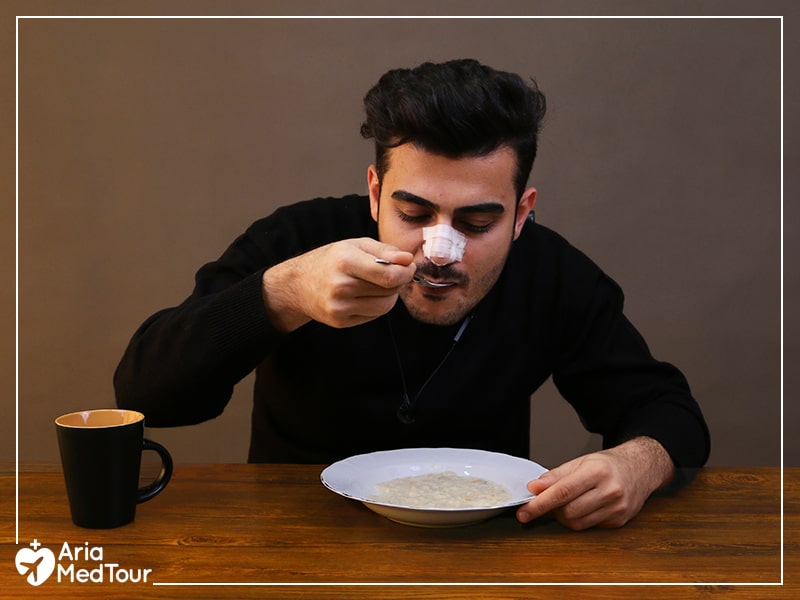
About 4 hours after the surgery, you may resume your daily diet by eating soft food.
Day of surgery
- On the day of surgery drink liquids such as fruit juice and water. Avoid acidic juices such as orange juice for they might irritate your stomach. Mango or pineapple juice are good choices instead. Furthermore, fresh and natural juices are far better and healthier than concentrated juices.
- Eat soft foods like chicken soup, baked or mashed potato, or cooked vegetable.
- Do not eat solid foods.
- Do not eat foods that cause indigestion. Avoid drinking milk.
- Foods containing large amounts of fiber is good for you as fiber regulates bowel movements.
- Avoid spicy foods and pepper.
First week
After a nose job surgery in Iran, you have to stay for 5-7 days in the country and you are probably staying in a hotel. During this time, most patients stop eating properly because of lack of appetite, fear of nausea and vomiting, weight loss diet, or laziness to prepare food and wash fruits. But you should keep in mind that your body needs calories for proper healing. Since the first week after rhinoplasty is very crucial for your recovery, you need to pay great attention to your diet during the first week.
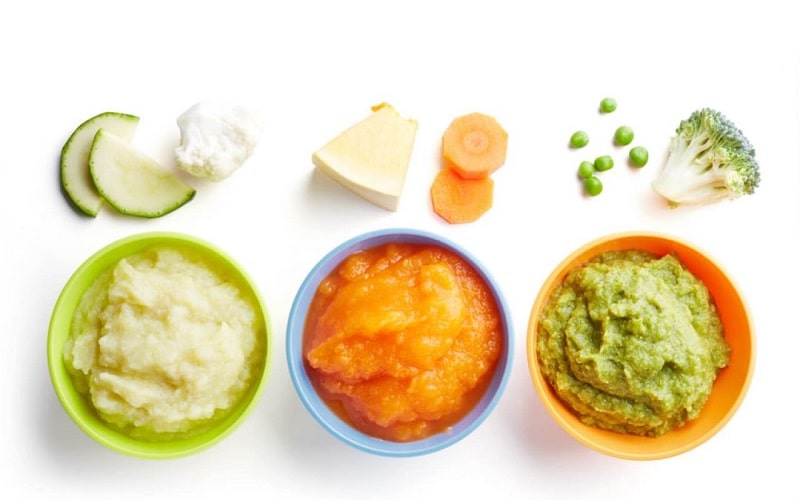
Your body needs calories for proper healing during the first week.
Make sure to ask a friend or your travel guide to buy for you (or take you to the bazaar to buy) fruits, juices, and a big box of mineral water, as you need to drink plenty of water during this period. Do not drink alcoholic beverages as alcohol is a diuretic substance that increases the production of urine, hence loss of body water, which slows the healing process. Do not use a straw for drinking, as it causes pain in your nose.
It is recommended that you prepare fresh food for yourself while staying in the hotel but if you are not in the mood of cooking, buy canned food (make sure to boil them for 20 minutes before consumption). The less you eat processed food the better. All the hotels we offer to our patients, however, feature restaurants that offer various foods that can be ordered and delivered to your room.
There aren’t significant dietary limitations for you from the second day after surgery. Just do not eat hot and spicy foods and try to avoid tough foods and foods that require biting and hard chewing, such as apples, carrots, sandwiches, etc.
- Read More: Complete Guide to Diet After Rhinoplasty
Share this article:
Related Articles
Feel free to express your opinions or ask your questions regarding the article

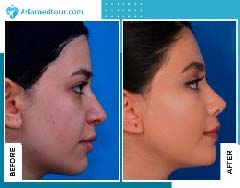
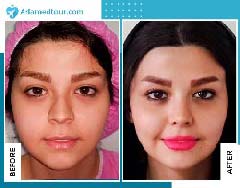
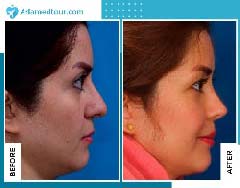
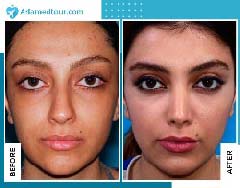
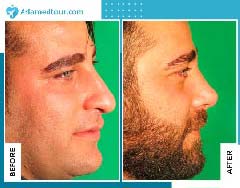
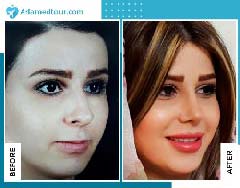
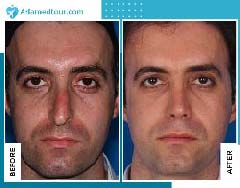
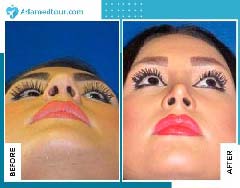
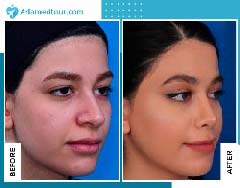
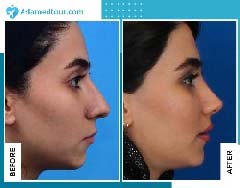
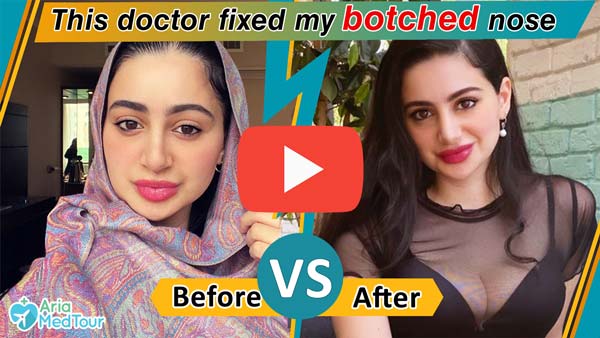



When & How Can I Wear Makeup After Rhinoplasty?
Skin Care After Rhinoplasty
Risks and Potential Complications of Rhinoplasty
How to Clean My Nose After Rhinoplasty?
How to Choose the Best Rhinoplasty Surgeon?